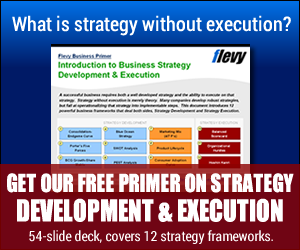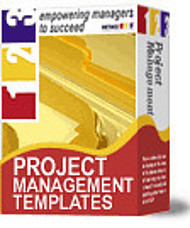Project management methodology involves following processes and a framework as an aid to executing successful projects. PMO’s institutionalize those processes and frameworks across all projects within an organization or domain.
Are project management and PMO skillsets different?
The PMO Skillset
 PMO’s – PMO is the acronym for Project Management Organization (or Office), or Program Management Organization – can be a good place for project managers to grow. They can provide:
PMO’s – PMO is the acronym for Project Management Organization (or Office), or Program Management Organization – can be a good place for project managers to grow. They can provide:
- Exposure across the range of projects within an organization
- A central place to meet other talented project managers
- Exposure to senior as well as middle management within the organization
- A taste of portfolio management – where projects are prioritized, selected, and monitored accordingly
- A central place which sets and monitors best practices for managing projects
There surely are more things a PMO does, but this covers the main groupings.
The question is, “Is there a specific skillset that applies to people that work within PMO’s – as differentiated from people that simply manage projects?”
There may be some hints to answering that question when you first consider the types of PMO’s that can exist. There are commonly three types of PMO:
- Supportive PMO – Provides support – all optional – to those within the organization that want to use them. These can include methodologies, templates, forms, and project governance structures. This type is the weakest form but can be a starting point.
- Controlling PMO – Provides strict rules and oversight regarding all, or a subset, of projects within the organization. This provides an additional hurdle – and risk – for projects, and the benefits need to be compelling to justify that additional cost.
- Directive PMO – Provides the actual Project Managers to manage the products. It takes responsibility for all projects and controls through the consistent application of project management methodology across the project manager ranks.
The career benefits one can experience will depend in large part on the kind of PMO that is in place within your organization. And it barely begins to grapple with whether there is actually a specific PMO skillset that is different from a PM skillset.
The House of PMO
 The ‘House of PMO‘ is a relatively new organization that describes itself in its tagline as “Home to PMO Professionals”. Based on that tagline, it seems that, to answer the question above, there could be a unique PMO skillset that is different from a PM skillset in some significant ways.
The ‘House of PMO‘ is a relatively new organization that describes itself in its tagline as “Home to PMO Professionals”. Based on that tagline, it seems that, to answer the question above, there could be a unique PMO skillset that is different from a PM skillset in some significant ways.
For now, let’s just keep the question in mind…
Let’s see how the House of PMO serves its constituency – those that work within PMO’s.
- Membership – Provides a means to bring PMO professionals, with common problems and skillsets – together.
- Events – Keep the membership activated and involved.
- Resources – Provide an additional service for the common interests of the members.
- Training – Provides a magnet for honing the necessary PMO skillset.
- Framework – Provides a ‘PMO Competency Framework‘ that holds practitioners together based on common structure – much in the same way the Project Management Body of Knowledge (PMBOK) does for PM practitioners.
So, it seems hat there is a somewhat new set of standards and competencies for a new, albeit overlapping, group of practitioners.
PMO’s, Core Competency, and Strategy
 Another big question is, “How can a PMO contribute to the strategy of an organization?”
Another big question is, “How can a PMO contribute to the strategy of an organization?”
Several answers immediately come to mind:
- Project management as a core competency – Core competencies are central to strategic choices. Many types of companies, whether they perform projects for clients on contract or execute on their own internal projects, can benefit and differentiate themselves from competitors by developing a strong competency in project management across the organization.
- Core PM skills as a competitive advantage – Being able to execute reliably has great value. It means being able to turn ideas into reality. One core PM skill is portfolio management. If a company can institutionalize good portfolio management – the selection of the best projects that will most effectively help the company get where it wants to go – it can become faster, more effective, and more cost controlled at implementing the ideas that will be help it to realize its strategic goals.
- Operationalizing project management – The fast pace of change, especially in evolving markets and business practices, tilts the scales away from an operations focus and toward a project focus. Operations do not last as long as they used to, so competency in being able to pivot to new operations more frequently and with less cost, is the ‘new operations’.
—————————————-
I recommend these strategy resources (paid link):
—————————————-
PMO’s, which manage the project management competency within organizations, can thus provide an important strategic strength to businesses.
PMO’s and Project Management
This brings me back to the original question asked early in this post: “Is there a specific skillset that applies to people that work within PMO’s – as differentiated from people that simply manage projects?”
Project managers, and the whole profession of project management, have worked hard to build effective methodologies to manage projects. What I find interesting is that the Project Management Institute (PMI) itself, especially with the most recent PMBOK (v7), has been working hard to build flexibility into the standard for project management. (For an explanation of the updates in PMBOK v7 and to earn 1 PDU, join the presentation by Tony Johnson of Crosswind PM.)
—————————————-
I recommend these PM templates (paid link):
—————————————-
On the surface, it appears that the House of PMO is going in the opposite direction – adding even more structure by singling out the PMO realm as a separate and distinct skillset from project management. This may be true; time will tell as we see how the House of PMO evolves.
My hunch is that the two will simply evolve together, as PMO’s are based on project management. Certainly there are some unique roles, activities, and skills involved with managing PMO’s that are different from the specific skills required to manage projects. But the reality is that the PMO is there to serve project stakeholders, and ultimately they will not survive unless they do.
I cannot help but think that a more organic approach is the solution. Take a well-managed project, and begin to build the structure for the PMO around that. Identify the things that are effective…and institutionalize them. But never forget that project success is the only way to keep the PMO ball rolling – that adding value to projects and for stakeholders is the only way to measure success.
Conclusion
My biggest concern about competency frameworks is that they themselves become the focus. They can add weight to the process of managing projects – which is counterproductive. With PMBOK v7 the PMI is rolling back the structure and emphasizing flexibility and agility?
What do you think about the distinction of a PM skillset and a PMO skillset?

